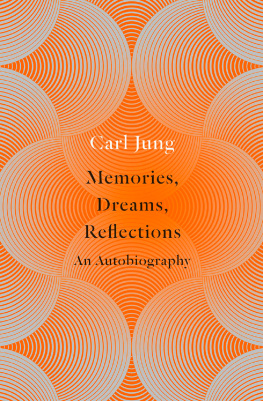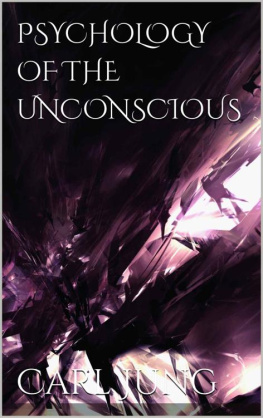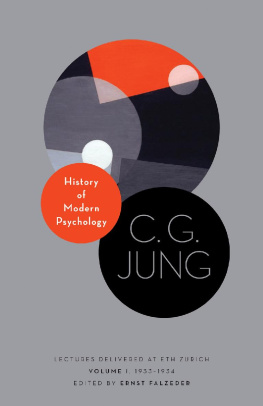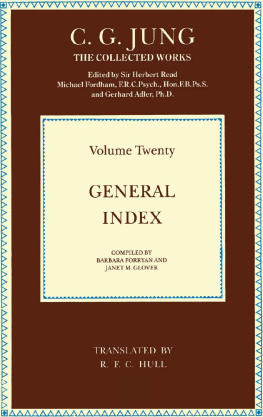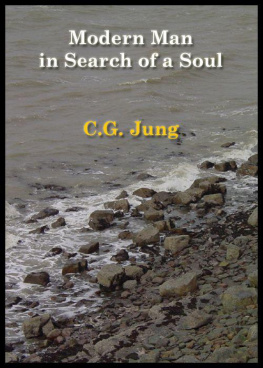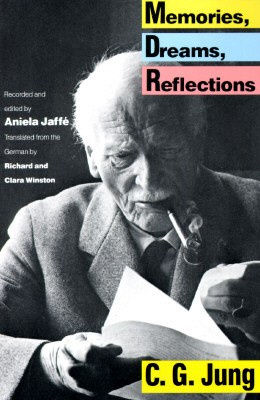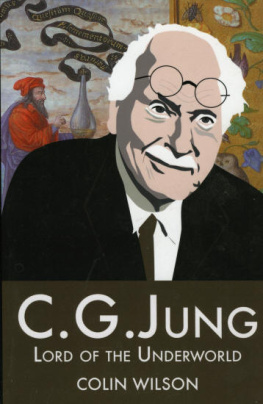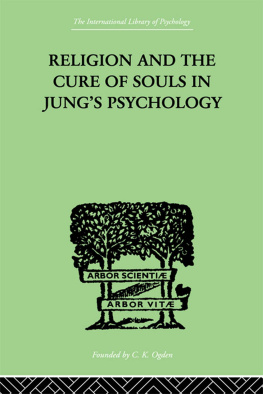Carl Jung - Memories, Dreams, Reflections: An Autobiography
Here you can read online Carl Jung - Memories, Dreams, Reflections: An Autobiography full text of the book (entire story) in english for free. Download pdf and epub, get meaning, cover and reviews about this ebook. year: 2013, publisher: HarperCollins Publishers, genre: Science. Description of the work, (preface) as well as reviews are available. Best literature library LitArk.com created for fans of good reading and offers a wide selection of genres:
Romance novel
Science fiction
Adventure
Detective
Science
History
Home and family
Prose
Art
Politics
Computer
Non-fiction
Religion
Business
Children
Humor
Choose a favorite category and find really read worthwhile books. Enjoy immersion in the world of imagination, feel the emotions of the characters or learn something new for yourself, make an fascinating discovery.
Memories, Dreams, Reflections: An Autobiography: summary, description and annotation
We offer to read an annotation, description, summary or preface (depends on what the author of the book "Memories, Dreams, Reflections: An Autobiography" wrote himself). If you haven't found the necessary information about the book — write in the comments, we will try to find it.
Memories, Dreams, Reflections: An Autobiography — read online for free the complete book (whole text) full work
Below is the text of the book, divided by pages. System saving the place of the last page read, allows you to conveniently read the book "Memories, Dreams, Reflections: An Autobiography" online for free, without having to search again every time where you left off. Put a bookmark, and you can go to the page where you finished reading at any time.
Font size:
Interval:
Bookmark:
FREUD TO JUNG
Vienna IX, Berggasse 19
April 16, 1909
DEAR FRIEND,
It is remarkable that on the same evening that I formally adopted you as an eldest son, anointing you as my successor and crown prince in partibus infidelium that then and there you should have divested me of any paternal dignity, and that the divesting seems to have given you as much pleasure as investing your person gave me. Now I am afraid that I must fall back again to the role of father towards you in giving you my views on poltergeist phenomena. I must do this because these things are different from what you would like to think.
I do not deny that your comments and your experiment made a powerful impression upon me. After your departure I determined to make some observations, and here are the results. In my front room there are continual creaking noises, from where the two heavy Egyptian steles rest on the oak boards of the bookcase, so thats obvious. In the second room, where we heard the crash, such noises are very rare. At first I was inclined to ascribe some meaning to it if the noise we heard so frequently when you were here were never heard again after your departure. But since then it has happened over and over again, yet never in connection with my thoughts and never when I was considering you or your special problem. (Not now, either, I add by way of challenge.) The phenomenon was soon deprived of all significance for me by something else. My credulity, or at least my readiness to believe, vanished along with the spell of your personal presence; once again, for various inner reasons, it seems to me wholly implausible that anything of the sort should occur. The furniture stands before me spiritless and dead, like nature silent and godless before the poet after the passing of the gods of Greece.
I therefore don once more my horn-rimmed paternal spectacles and warn my dear son to keep a cool head and rather not understand something than make such great sacrifices for the sake of understanding. I also shake my wise grey locks over the question of psychosynthesis and think: Well, that is how the young folks are; they really enjoy things only when they need not drag us along with them, where with our short breath and weary legs we cannot follow.
Now I shall exercise the privilege of my years to turn loquacious and tell you about one more matter between heaven and earth which cannot be understood. A few years ago I took it into my head that I would die between the ages of 61 and 62, which at that time seemed to leave me a decent period of grace. (To-day that leaves me only eight years still to go.) Shortly afterwards I made a trip to Greece with my brother, and it was absolutely uncanny to see how the number 61, or 62 in conjunction with 1 and 2, kept cropping up on anything that had a number, especially on vehicles. I conscientiously noted down these occasions. By the time we came to Athens, I was feeling depressed. At our hotel we were assigned rooms on the second floor, and I hoped I could breathe again at least there could be no chance of No. 61. However, it turned out that my room was No. 31 (which, with fatalistic licence, I regarded as after all half of 6162). This wilier and nimbler figure proved to be even better at dogging me than the first.
From that day until very recently the number 31 remained faithful to me, with a 2 all too readily associated with it. But since I also have in my psychic system regions in which I am merely avid for knowledge and not at all superstitious, I have attempted to analyse this conviction. Here it is. My conviction began in 1899. Two events coincided at that time. The first was my writing The Interpretation of Dreams (which, you know, is dated ahead to 1900); the second, my being assigned a new telephone number, which I have to this day: 14362. It is easy to establish a link between these two facts: in the year 1899, when I wrote The Interpretation of Dreams, I was 43 years old. What should be more obvious than that the other figures in my telephone number were intended to signify the end of my life, hence, 61 or 62? Suddenly there appears a method in this madness. The superstition that I would die between 61 and 62 turns out to be equivalent to the conviction that with the book on dreams I had completed my life work, needed to say no more, and could die in peace. You will grant that after this analysis it no longer sounds so nonsensical. Incidentally, the influence of Wilhelm Fliess plays a part in this; the superstition dates from the year of his attack on me.
Here is another instance where you will find confirmation of the specifically Jewish character of my mysticism. Apart from this, I only want to say that adventures such as mine with the number 62 can be explained by two things. The first is an enormously intensified alertness on the part of the unconscious, so that one is led like Faust to see a Helen in every woman. The second is the undeniable co-operation of chance, which plays the same role in the formation of delusions as somatic co-operation in hysterical symptoms or linguistic co-operation in puns.
I therefore look forward to hearing more about your investigations of the ghost-complex, my interest being the interest one has in a lovely delusion which one does not share oneself.
With cordial regards to yourself,
your wife and children,
Yours,
Freud
Vienna, Berggasse 19
May 21, 1911
DEAR FRIEND,
I know that your deepest inclinations are impelling you towards a study of the occult, and do not doubt that you will return home with a rich cargo. There is no stopping that, and it is always right for a person to follow the biddings of his own impulses. The reputation you have won with your Dementia will stand against the charge of mystic for quite a while. Only dont stay too long away from us in lush tropical colonies; it is necessary to govern at home.
With cordial greetings and the hope that you will write me again after a shorter interval this time.
Your faithful
Freud
Vienna IX, Berggasse 19
June 15, 1911
DEAR FRIEND,
In matters of occultism I have become humble ever since the great lesson I received from Ferenczis experiences. I promise to believe everything that can be made to seem the least bit reasonable. As you know, I do not do so gladly. But my hubris has been shattered. I should like to have you and F. acting in consonance when one of you is ready to take the perilous step of publication, and I imagine that this would be quite compatible with complete independence during the progress of the work.
Cordial regards to you and the beautiful house
from Your faithful
Freud
LETTERS TO EMMA JUNG FROM AMERICA (1909)
September 6, 1909, Monday
At Prof. Stanley Halls
Clark University, Worcester
So now we are safely arrived in Worcester! I have to tell you about the trip. Last Saturday there was dreary weather in New York. All three of us were afflicted with diarrhoea and had pretty bad stomach aches In spite of feeling physically miserable and in spite of not eating anything, I went to the paleontological collection, where all the old monsters, the Lord Gods anxiety dreams of Creation, are to be seen. The collection is absolutely unique for the phylogenesis of Tertiary mammals. I cannot possibly tell you all I saw there. Then I met Jones, who had just arrived from Europe. Around half-past three we took the elevated and rode from 42nd Street to the piers. There we boarded a fantastically huge structure of a steamer that had some five white decks. We took cabins, and our vessel set sail from the West Rivet round the point of Manhattan with all its tremendous skyscrapers, then up the East River under the Brooklyn and Manhattan Bridges, right through the endless tangle of tugs, ferryboats, etc., and through the Sound behind Long Island. It was damp and chilly, we had belly aches and diarrhoea and were suffering from hunger besides, so we crawled into bed. Early on Sunday morning we were already on land in Fall River City, where in the rain we took the train to Boston and immediately went on to Worcester. While we were en route, the weather cleared. The countryside was utterly charming, low hills, a great deal of forest, swamp, small lakes, innumerable huge erratic rocks, tiny villages with wooden houses, painted red, green, or grey, with windows framed in white (Holland!), tucked away under large beautiful trees. By 11:30 we were in Worcester. We found the Standish Hotel a very pleasant place to stay, and cheap also, on the American plan, as they say here that is, with board. At six in the evening, after a well-deserved rest, we called on Stanley Hall. He is a refined, distinguished old gentleman close on seventy who received us with the kindest hospitality. He has a plump, jolly, good-natured, and extremely ugly wife who, however, serves wonderful food. She promptly took over Freud and me as her boys and plied us with delicious nourishment and noble wine, so that we began visibly to recover. We slept very well that night in the hotel, and this morning we have moved over to the Halls. The house is furnished in an incredibly amusing fashion, everything roomy and comfortable. There is a splendid studio filled with thousands of books, and boxes of cigars everywhere. Two pitch-black Negroes in dinner jackets, the extreme of grotesque solemnity, perform as servants. Carpets everywhere, all the doors open, even the bathroom door and the front door; people going in and out all over the place; all the windows extend down to the floor. The house is surrounded by an English lawn, no garden fence. Half the city (about a hundred and eighty thousand inhabitants) stands in a regular forest of old trees which shade all the streets. Most of the houses are smaller than ours, charmingly surrounded by flowers and flowering shrubs, overgrown with Virginia creeper and wistaria; everything well tended, clean, cultivated, and exceedingly peaceful and congenial. A wholly different America! This is what they call New England. The city was founded as long ago as 1690, so it is very old. Much prosperity. The university, richly endowed, is small but distinguished, and has a real, though plain elegance. This morning was the opening session. Prof. X had first turn, with boring stuff. We soon decamped and took a delightful walk through the outskirts of the town, which is surrounded on all sides by small and minute lakes and cool woods. We were ecstatic over the peaceful beauty of the surroundings. It is refreshing and reviving after the life in New York.
Font size:
Interval:
Bookmark:
Similar books «Memories, Dreams, Reflections: An Autobiography»
Look at similar books to Memories, Dreams, Reflections: An Autobiography. We have selected literature similar in name and meaning in the hope of providing readers with more options to find new, interesting, not yet read works.
Discussion, reviews of the book Memories, Dreams, Reflections: An Autobiography and just readers' own opinions. Leave your comments, write what you think about the work, its meaning or the main characters. Specify what exactly you liked and what you didn't like, and why you think so.

